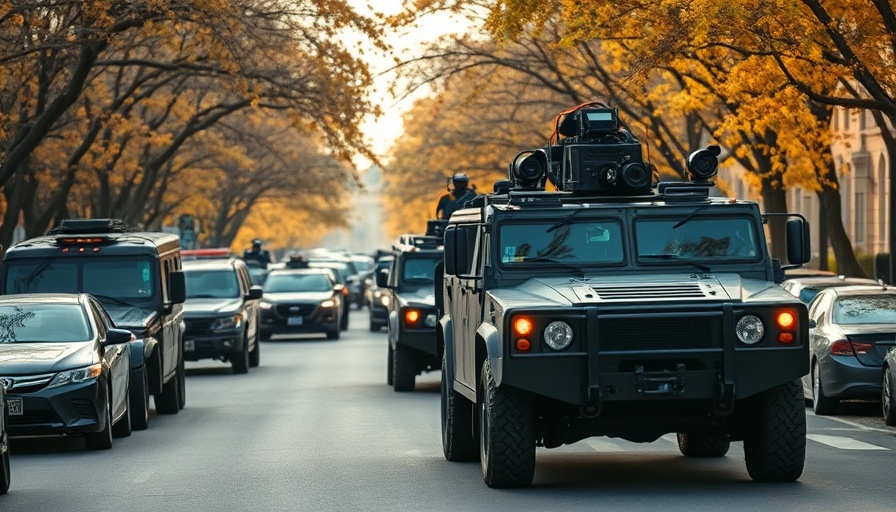
Recent Colorado Raid Unveils Dark Underbelly of Crime and Immigration
In a significant late-night operation, federal agents raided an underground nightclub in Colorado Springs on April 27, 2025, resulting in the detention of over 100 undocumented immigrants. The Drug Enforcement Administration (DEA) reported that officials found not only illicit drugs—including cocaine, methamphetamines, and a novel powdered drug known as pink cocaine—but also weapons stashed inside the club, heightening the gravity of the situation.
Unpacking the Details of the Raid
The raid unfolded at approximately 2 a.m., with federal agents responding to reports of illegal activity in the venue, which was notorious for hosting over 200 patrons on any given night. Of those present during the operation, 114 individuals were identified as undocumented immigrants. The specificity of the timing and the meticulous pre-raid surveillance indicates that the DEA had been monitoring the establishment for several months. Jonathan C. Pullen, the special agent in charge of the DEA's Rocky Mountain Division, described a nexus of drug trafficking, prostitution, and violent crimes occurring in the nightclub, asserting that such raids are crucial in combating organized crime.
The Impact of Military Involvement
Among the detainees were several active-duty members of the U.S. military, allegedly involved in maintaining security at the club. This revelation adds another layer of complexity to the situation, as the military personnel were subsequently handed over to the Army's criminal investigation division. Questions arise about the implications of military involvement in criminal activities, particularly how this influences public perception about both law enforcement and military integrity.
Immigration and Law Enforcement: A Heated Debate
This incident comes against a backdrop of escalating immigration discussions under the current U.S. administration's policies. Critics argue that aggressive raids not only incite fear within immigrant communities but also expose systemic issues related to drug trafficking and violence. Supporters of the crackdown contend that such actions are necessary for public safety and national security.
The Broader Implications for Communities
The fallout from such raids can ripple through communities on multiple levels. For undocumented immigrants, the fear of deportation looms large, while law enforcement faces scrutiny for its tactics. Residents often find themselves caught in the middle, leading to a strained relationship between immigrant communities and local law enforcement. Understanding these dynamics is essential for developing future policies aimed at fostering community safety without exacerbating tensions.
What Comes Next?
The challenge ahead lies in addressing the various facets of this incident. How can law enforcement navigate the delicate balance between upholding the law and protecting rights? What changes need to be made to ensure that the root causes of drug trafficking and immigration issues are addressed holistically? Moreover, the role of military personnel in civilian law enforcement raises ethical questions worth exploring.
As this narrative unfolds, it serves as a pivotal moment for both the communities impacted and the policymakers tasked with creating an effective response. The need for comprehensive immigration reform, alongside robust drug policies that prioritize public safety without targeting vulnerable populations, is more apparent than ever.
This high-profile raid not only sheds light on the complexities of crime and immigration but also illustrates the urgent need for discourse on how to effectively respond to these interlinked challenges in modern America.
 Add Element
Add Element  Add Row
Add Row 



 Add Row
Add Row  Add
Add 


Write A Comment